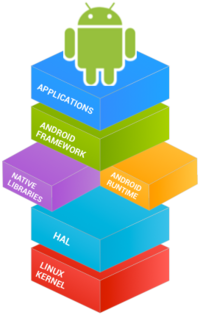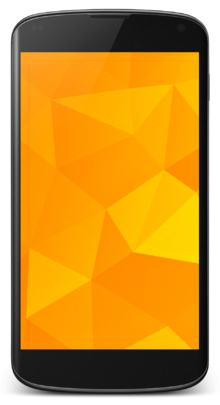
Back تطوير برمجيات أندرويد Arabic অ্যান্ড্রয়েড সফটওয়্যার উন্নয়ন Bengali/Bangla داڕێژەری بەرنامەی ئەندرۆید CKB Android-Softwareentwicklung German Desarrollo de programas para Android Spanish Androidi tarkvara arendus Estonian توسعه نرمافزار اندروید Persian Android-sovelluskehitys Finnish Android համակարգի համար հավելվածների մշակում Armenian Pengembangan perangkat lunak Android ID


Android software development is the process by which applications are created for devices running the Android operating system. Google states that[3] "Android apps can be written using Kotlin, Java, and C++ languages" using the Android software development kit (SDK), while using other languages is also possible. All non-Java virtual machine (JVM) languages, such as Go, JavaScript, C, C++ or assembly, need the help of JVM language code, that may be supplied by tools, likely with restricted API support. Some programming languages and tools allow cross-platform app support (i.e. for both Android and iOS). Third party tools, development environments, and language support have also continued to evolve and expand since the initial SDK was released in 2008. The official Android app distribution mechanism to end users is Google Play; it also allows staged gradual app release, as well as distribution of pre-release app versions to testers.
- ^ "The Android Source Code". Source.Android.com. Retrieved February 2, 2017.
- ^ Syed H (September 24, 2023). "Editorial: Why You Should Go Nexus". Droid Lessons. Archived from the original on February 18, 2017. Retrieved August 22, 2023.
- ^ "Application Fundamentals". Android Developers.